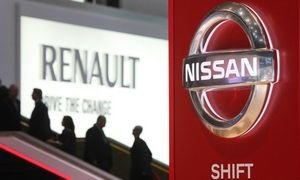Renault, Nissan Limit French Government Interference

But more than that, they seek to cap the degree of influence which the French government can bring to bear on either automaker.
The steps are being taken in response to investment moves by the French state. While the government's investment arm – known as the Agence des Participations de l'État (or state participation agency) – previously controlled 15 percent of Renault's shares, it increased its holdings this April to 19.73 percent. The action sparked concerns at Renault that the French government would attempt to dictate operating procedures to both automakers, potentially to favor production in France over other locations. Given that Renault holds a 43-percent stake in Nissan, the Japanese automaker grew concerned over potential French state interference as well.
To assuage those concerns, Renault, Nissan, and the French government came to an agreement with three vital clauses. Most importantly, despite its nearly 20-percent holdings, the French government will be granted only 17.9 percent of voting rights in Renault (to be extended up to 20 percent under certain exceptional circumstances). Renault (and by extension the French government) will also be prevented from interfering in Nissan's governance. With those measures in place, Nissan will not seek more voting rights based on the 15-percent stake which it, in turn, holds in Renault.
Having successfully concluded the deal and hedged against the threat of government interference, the Renault board reasserted its confidence in Carlos Ghosn. Through the unique terms of their alliance, Ghosn serves as chairman and CEO of both Renault and Nissan. The two cooperate closely and share resources extending far beyond their chief executive, but remain distinct companies rather than merge, as Fiat and Chrysler have.
Related News
